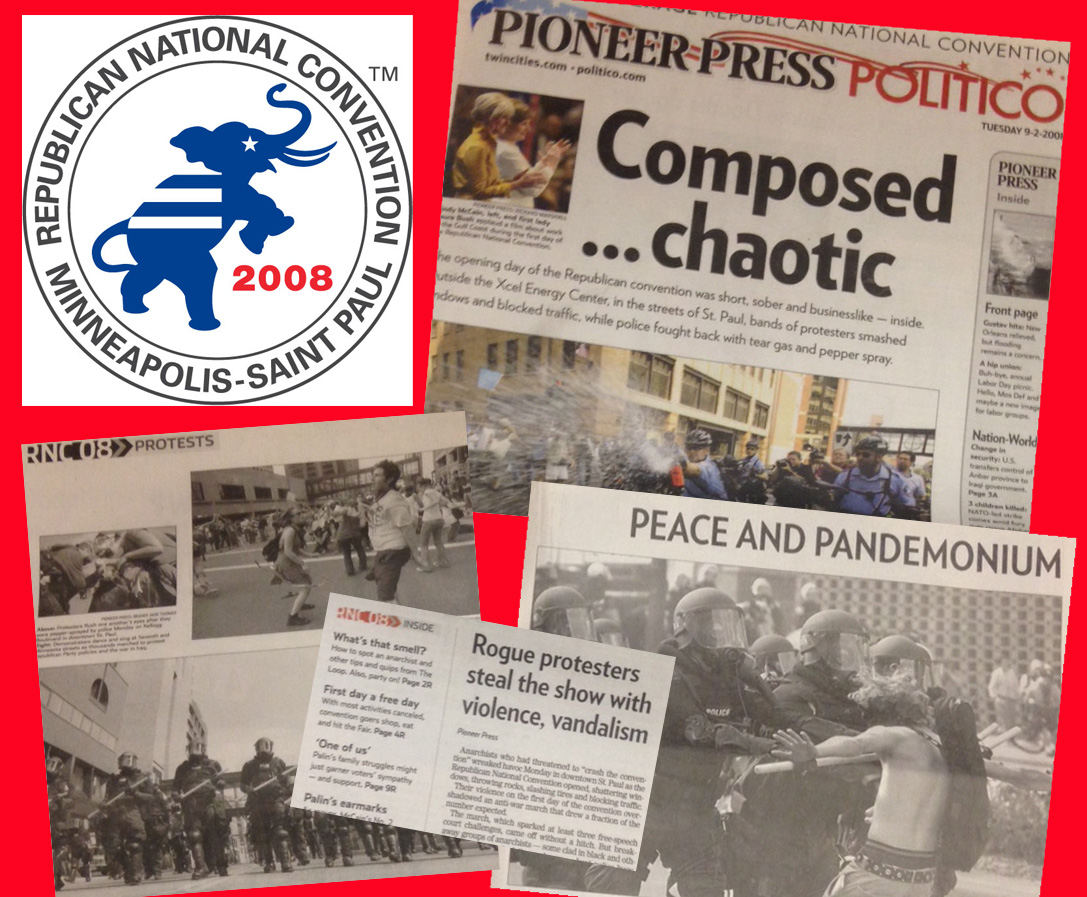


Why Cleveland’s Reputation Can Survive Republican National Convention Protests
[By Thom Fladung, Hennes Communications]
As of July, I’ll be able to say I’ve worked in the cities that played host to two of the last three Republican National Conventions.
Given that I was in St. Paul, Minnesota, serving as editor of the St. Paul Pioneer Press during the 2008 RNC, people have asked what to expect in Cleveland. One of the most frequent questions centers on reputation management and crisis management: What are the injuries to Cleveland’s reputation if convention protesters riot, disrupting lives and damaging property? A black eye, maybe, but with quick healing and no long-term scars.
The answer comes with caveats, including a lifelong inability to make predictions. (See my predictions for every Cleveland sports team’s upcoming season, ever.) But the answer is based on real-life experiences with the national political convention in St. Paul.
To refresh my memory and impressions from 2008, I got in touch with several colleagues from the Pioneer Press, including reporters and editors who were on the front lines of covering that convention and the protests.
First, though, the caveats on comparisons between 2008 and 2016. Eight years ago is a long time. For example, something called Twitter emerged in 2008, according to the Poynter Institute for journalism, as the “surprise star of RNC coverage”. Now, Twitter is an expected part of all news coverage. Periscope and Meerkat, the live streaming apps that make everyone with a smartphone a broadcast journalist, didn’t exist in 2008. This convention and any protests that come with it won’t be covered as the 2008 convention was covered. How journalism is done has changed dramatically over that short period.
If the glow of positive publicity for Cleveland from playing convention host is the greatest hope, the stain of negative publicity from protesters and riots seems to be one of the greatest fears from a reputation and crisis management viewpoint.
Fear not, at least based on the St. Paul experience.
St. Paul did have protesters – lots of them. A group that called itself the RNC Welcoming Committee vowed to disrupt the convention and prevent delegates from reaching the Xcel Energy Center. There were protests, and there was damage from what some characterized as riots. There were more than 800 arrests – although the vast majority of charges were eventually dismissed.
For the Pioneer Press and other local Twin Cities media, the protests and violent clashes with police were a big story. After all, this was our city. And if it happens in Cleveland, it will be a big story locally. But how much attention will the rest of the world pay – and how much of any attention on protests really also involves the city?
To be sure, in St. Paul visiting media like the Los Angeles Times reported on the violence. But for the national media, the story was inside the convention hall. This was, after all, the nation’s introduction to Sarah Palin.
“Those darn anarchists,” one former colleague remembered. “I think on the national stage it was a blip. Then locally, the cases slowly worked through the courts and mostly disappeared.”
“They got some national attention but it was limited,” said another. “Remember the extra elements of our RNC: a hurricane menacing New Orleans and Sarah Palin’s coming out party. Many daily national stories I read led with those angles and mentioned the protests.”
Did the protests in St. Paul leave a mark? Almost surely they did with local leaders, who would say (probably off the record) that the violence was a distinctly unpleasant part of staging a convention. And putting on a convention is expensive and exhausting for cities.
It’s probably not a coincidence that three of the cities that hosted conventions in the last decade – Charlotte, Tampa and St. Paul – all passed on a chance to bid for one again in 2016.
So, based on St. Paul 2008, what are we to think of Cleveland 2016? Enjoy the moment in a big, bright spotlight. There will be disruptions but they will pass quickly. We’ll have the physical improvements like Public Square, spurred to completion by the 2016 deadline, long after the convention is a distant memory.
And Cleveland’s reputation, which has improved through the painstaking work of many people over many years, won’t be made or broken by this single event.
Thom Fladung joined Hennes Communications in July after years in newspapers, including six as editor of the St. Paul Pioneer Press.